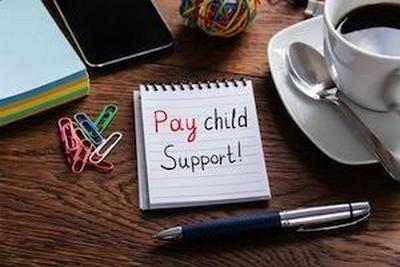Free Initial Consultations
 630-580-6373
630-580-6373With offices in Naperville, Joliet, Wheaton, Plainfield & Chicago
 When a woman gives birth, she may or may not know who is the father of the child. Even if the mother knows who the father of the child is, the father may dispute this. Further, the law makes assumptions about the paternity of the child in some cases and if this is not correct, then legal action may need to be taken to set the record straight.
When a woman gives birth, she may or may not know who is the father of the child. Even if the mother knows who the father of the child is, the father may dispute this. Further, the law makes assumptions about the paternity of the child in some cases and if this is not correct, then legal action may need to be taken to set the record straight.
No matter what the situation is, it is extremely beneficial to the child to make sure that paternity is established at some point. If you have questions about the paternity process, or need help establishing paternity, you should contact a knowledgeable paternity lawyer to help you with the process.
Benefits of Establishing Paternity
There are several benefits to establishing paternity, especially for a child. Establishing paternity allows a child, and his or her other parent, to have the right to child support. Establishing paternity may also allow the child to be covered under any health insurance plan that the father has. Moreover, paternity gives a child the right to inheritance from the father, the right to Social Security benefits, the right to life insurance benefits, and the right to veterans benefits if applicable.
 Dividing property can be a very stressful part of a divorce. There may be some items of sentimental value to you that you want to keep, and there are certain steps you can take to make sure that you hold on to property that is important to you in case of a divorce. If you are considering divorce and want to protect certain property, you should contact a skilled property division attorney to find out the best way to make sure your assets are protected in a divorce.
Dividing property can be a very stressful part of a divorce. There may be some items of sentimental value to you that you want to keep, and there are certain steps you can take to make sure that you hold on to property that is important to you in case of a divorce. If you are considering divorce and want to protect certain property, you should contact a skilled property division attorney to find out the best way to make sure your assets are protected in a divorce.
Prenuptial Agreement
One of the best ways to make sure that property with sentimental value is protected in the event of a divorce is to include it in a prenuptial agreement. If you are already married, you can draw up a postnuptial agreement that addresses the property for which you are concerned. However, even if you do not have a prenuptial or postnuptial agreement, there are other ways to protect the property.
 It is every parent’s worst nightmare: you receive a knock on the door and the Illinois Department of Child and Family Services (DCFS) is there to investigate a call of child abuse and neglect. In order to protect children, DCFS takes reports of suspected child abuse and neglect very seriously and will investigate any credible reports. However, just because DCFS is called does not necessarily mean that there is abuse or neglect taking place. Still, it is their job to investigate credible reports. If you are accused of child abuse or neglect, you should contact a knowledgeable DCFS hearing attorney.
It is every parent’s worst nightmare: you receive a knock on the door and the Illinois Department of Child and Family Services (DCFS) is there to investigate a call of child abuse and neglect. In order to protect children, DCFS takes reports of suspected child abuse and neglect very seriously and will investigate any credible reports. However, just because DCFS is called does not necessarily mean that there is abuse or neglect taking place. Still, it is their job to investigate credible reports. If you are accused of child abuse or neglect, you should contact a knowledgeable DCFS hearing attorney.
Definition of Child Abuse
The Illinois Abused and Neglected Child Reporting Act defines child abuse as when a parent, immediate family member, anyone else residing in the house with the child, or any person who is responsible for the welfare of the child inflicts physical injury on a child or allows physical injury to be inflicted on a child. This injury must cause death, disfigurement, loss of a body part, impairment of a body part, or impairment of physical or emotional health. There is a specific exception in the statute for accidents. It is also child abuse to create a substantial risk of these kinds of injuries happening to a child. Child abuse also includes excessive corporal punishment.
 At the beginning of the year, Illinois family law made several changes to the way it divides up parenting time, formerly known as visitation, and parenting responsibilities, formerly known as custody. While parenting time is somewhat straightforward—it has to do with when each parent has time with the children—parental responsibility can be a little more tricky.
At the beginning of the year, Illinois family law made several changes to the way it divides up parenting time, formerly known as visitation, and parenting responsibilities, formerly known as custody. While parenting time is somewhat straightforward—it has to do with when each parent has time with the children—parental responsibility can be a little more tricky.
If you are in the process of a divorce or are trying to figure out a new parenting plan, you should contact knowledgeable child custody attorneys to help you understand all the options you have for sharing or dividing up these responsibilities.
Parenting Responsibilities
In order to get a divorce in Illinois when children are involved, you need to create and agree to a parenting plan with the other parent. If not, the judge will decide the provisions of the plan. A parenting plan divides up parenting time and parenting responsibilities. Different parental responsibilities are allocated to each or both parents, and parenting responsibilities can also include parenting time. Besides parenting time, the allocation of parental responsibilities also includes dividing up significant decision making responsibilities.
 If you are thinking about a divorce, you may be wondering how much time you will be able to spend with your child. In Illinois, this is referred to as “parenting time.” How much time you will have with your child is extremely fact specific, though there are some general guidelines that the court will take into account.
If you are thinking about a divorce, you may be wondering how much time you will be able to spend with your child. In Illinois, this is referred to as “parenting time.” How much time you will have with your child is extremely fact specific, though there are some general guidelines that the court will take into account.
For a more specific analysis that takes into account your specific circumstances, you should contact a knowledgeable parenting time attorney.
Best Interest of the Child
The standard used by the Illinois family court to make most decisions looks at the best interest of the child. The Illinois Marriage and Dissolution of Marriage Act list several factors that are considered to decide what is in the best interests of the child. These factors include:
 Guardians are people who are appointed by the court to manage the affairs of someone else, known as the “ward.” Guardianship is often misunderstood, though there are specific circumstances where a guardianship may be warranted and defined processes as to how a guardianship can be put into place. If you think that a loved one may benefit from a guardianship, you should speak to a skilled guardianship attorney who can help you with the process.
Guardians are people who are appointed by the court to manage the affairs of someone else, known as the “ward.” Guardianship is often misunderstood, though there are specific circumstances where a guardianship may be warranted and defined processes as to how a guardianship can be put into place. If you think that a loved one may benefit from a guardianship, you should speak to a skilled guardianship attorney who can help you with the process.
Circumstances Where a Guardian May be Appointed
Most adults can take care of their own affairs and therefore will not need a guardian. However, there are certain circumstances where an adult is unable to make his or her own decisions, such as when there is mental illness, mental deterioration, physical incapacity, or a developmental disability. Though just because someone may have a mental health or developmental disability does not automatically mean he or she cannot make his or her own decisions and handle his or her own affairs. It is only when an adult is so incapacitated that he or she cannot make responsible decisions that a guardianship may be appropriate.
 November was National Adoption Month. Currently, almost 15,000 children are in foster care in Illinois. Many potential adoptive parents are members of the lesbian, gay, bisexual, transgender, and queer (LGBTQ) community and may have questions about the laws in Illinois around adoption, whether through foster care or another way. If you are thinking about adoption, you should work with a skilled adoption lawyer who can help you navigate the process.
November was National Adoption Month. Currently, almost 15,000 children are in foster care in Illinois. Many potential adoptive parents are members of the lesbian, gay, bisexual, transgender, and queer (LGBTQ) community and may have questions about the laws in Illinois around adoption, whether through foster care or another way. If you are thinking about adoption, you should work with a skilled adoption lawyer who can help you navigate the process.
Illinois Same Sex Adoptions Increasing
Chicago City Wire recently spoke with an employee from the Illinois Center for Adoption and Permanency, who noted that there has been a 22 percent increase this year in same-sex couples who want to adopt one of the children with whom the organization works. Agencies such as this one have specifically been targeting the LGBTQ community for recruitment of adoptive parents, especially as prospective adoptive parents of children in foster care.
NOTE: As of July 2017, the law governing child support in Illinois has changed. Please see our Child Support page for more information.
 If you are considering divorce or are in the process of a divorce, you may have questions regarding child support. However, every situation is different. Therefore, it is important to speak with a skilled child support attorney who can assess your situation and help answer your questions.
If you are considering divorce or are in the process of a divorce, you may have questions regarding child support. However, every situation is different. Therefore, it is important to speak with a skilled child support attorney who can assess your situation and help answer your questions.
How Much Child Support Will I Pay?
If you are not the parent with whom the child lives, you will most likely have to pay child support. The amount that you will pay will depend on the number of children you have, your income, and any special circumstances. Illinois lays out percentages of income based on the number of shared children: One child requires 20 percent, two children require 28 percent, three children require 32 percent, and four children require 40 percent. However, this is just the base amount and the court may make changes based on the needs of the child, the income of the parents, and any other relevant factors.
 As technology has progressed, more people are using these advances to help with conception. Different assisted reproductive technology (ART) techniques allow single people, LGBT people, and couples struggling with infertility to have biological children. ART includes such techniques as in vitro fertilization, surrogacy, and sperm donation through known or unknown donors.
As technology has progressed, more people are using these advances to help with conception. Different assisted reproductive technology (ART) techniques allow single people, LGBT people, and couples struggling with infertility to have biological children. ART includes such techniques as in vitro fertilization, surrogacy, and sperm donation through known or unknown donors.
While ART is becoming more common, the law is slow to catch up and ART may bring up new questions for the law to address, including paternity. If you are considering using ART to conceive, or are thinking about helping other people conceive as a surrogate or sperm or egg donor, you should work with a knowledgeable parentage attorney to make sure that you understand your rights, responsibilities, and obligations under the law.
Illinois Uniform Parentage Act
Illinois law has several provisions that address the concerns of those looking into ART. One of the main Illinois laws on the subject is the Illinois Uniform Parentage Act. The parentage act recognizes a parent-child relationship between the child and the woman who gives birth to the child; however, it accepts a parent-child relationship when there is a valid surrogacy agreement in place.
 If you are in the process of divorce, or are contemplating divorce, there are important tax considerations that must be taken into account. Specific parts of the tax code speak directly to divorce; thus, divorcing couples must consider the tax consequences with regard to the decisions being made.
If you are in the process of divorce, or are contemplating divorce, there are important tax considerations that must be taken into account. Specific parts of the tax code speak directly to divorce; thus, divorcing couples must consider the tax consequences with regard to the decisions being made.
Timing for Filing Status
Whether or not you are eligible to file jointly depends on your marital status. The IRS uses your official marital status as of December 31. Therefore, if your divorce is not finalized by the end of the year, you can file jointly. You may want to keep this in mind when you consider the timing of your divorce.
Dependents
If there are children from the marriage, the question of who will claim which child is typically something that is decided during divorce proceedings. To begin, you should first discuss this with your attorney before the issue arises. It may make sense for one person to claim all dependents and give up something else. Or, one parent can claim some of the children and the other parent can claim the rest.
